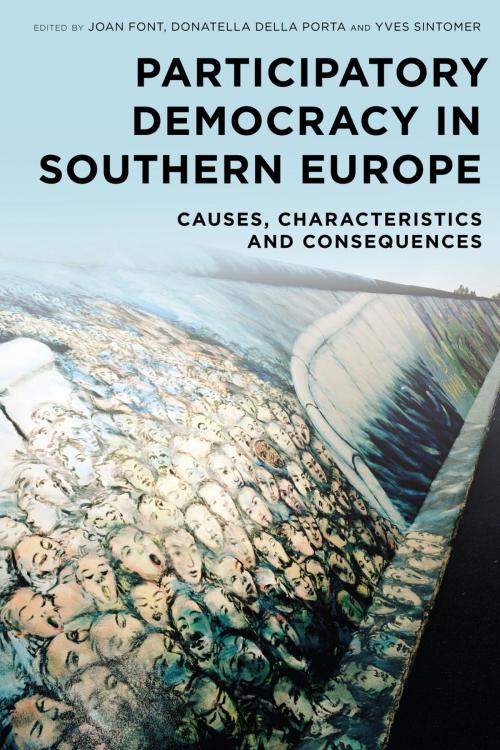Participatory Democracy in Southern Europe
Causes, Characteristics and Consequences
Nonfiction, Social & Cultural Studies, Political Science, Government, Civics, Politics, Practical Politics, Democracy| Author: | ISBN: | 9781783480753 | |
| Publisher: | Rowman & Littlefield International | Publication: | June 5, 2014 |
| Imprint: | Rowman & Littlefield International | Language: | English |
| Author: | |
| ISBN: | 9781783480753 |
| Publisher: | Rowman & Littlefield International |
| Publication: | June 5, 2014 |
| Imprint: | Rowman & Littlefield International |
| Language: | English |
Citizen participation is a central component of democratic governance. As participatory schemes have grown in number and gained in social legitimacy over recent years, the research community has analyzed the virtues of participatory policies from several points of view, but usually giving focus to the most successful and well-known grass-roots cases. This book examines a wider range of participatory interventions that have been created or legitimized by central governments, providing original exploration of institutional democratic participatory mechanisms.
Looking at a huge variety of subnational examples across Italy, Spain and France, the book interrogates the rich findings of a substantial research project. The authors use quantitative and qualitative methods to compare why these cases of participatory mechanisms have emerged, how they function, and what cultural impact they’ve achieved. This allows highly original insights into why participatory mechanisms work in some places, but not others, and the sorts of choices that organizers of participatory processes have to consider when creating such policies.
Citizen participation is a central component of democratic governance. As participatory schemes have grown in number and gained in social legitimacy over recent years, the research community has analyzed the virtues of participatory policies from several points of view, but usually giving focus to the most successful and well-known grass-roots cases. This book examines a wider range of participatory interventions that have been created or legitimized by central governments, providing original exploration of institutional democratic participatory mechanisms.
Looking at a huge variety of subnational examples across Italy, Spain and France, the book interrogates the rich findings of a substantial research project. The authors use quantitative and qualitative methods to compare why these cases of participatory mechanisms have emerged, how they function, and what cultural impact they’ve achieved. This allows highly original insights into why participatory mechanisms work in some places, but not others, and the sorts of choices that organizers of participatory processes have to consider when creating such policies.















